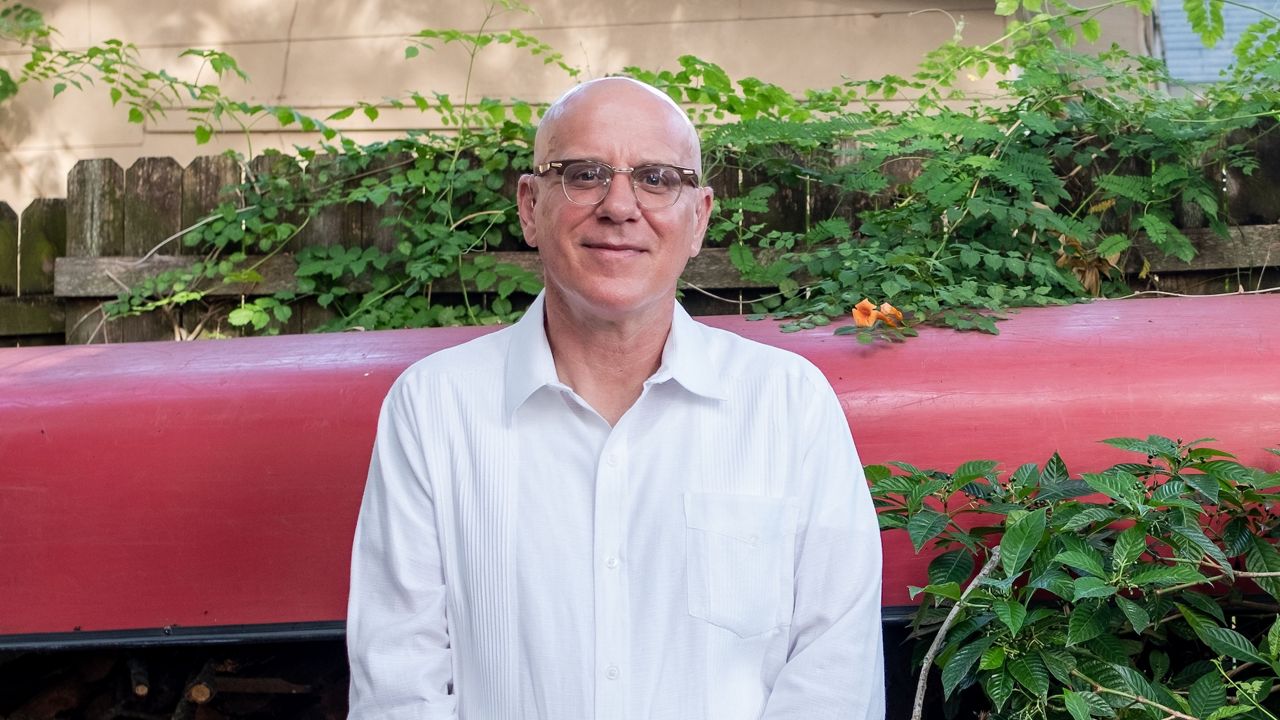ST. PETERSBURG, Fla. — Welcome to 9 Questions with…, a new regular feature in which we’ll get to know some of the Bay area’s movers and shakers a little better. It could be a politician, an artist, a first responder, a bartender—just about anyone, really. This week’s subject is USF St. Petersburg professor and author Thomas Hallock, whose new book A Road Course in Early American Literature: Travel and Teaching from Aztlan to Amherst, is out now. Is there someone you’d like to answer 9 Questions? Let us know!
What You Need To Know
- Spectrum Bay News 9's new series spotlights notable members of the Tampa Bay community
- USF St. Petersburg professor and author Thomas Hallock has a new book out
- Check back every week for a new "9 Questions with..."
Are you a Tampa Bay native? If not, where are you from?
I lived all over growing up, mostly New York, and I have been in the Tampa Bay area since 2001. But much of my family now lives in St. Petersburg, so I claim the Sunshine City as my adopted home.
How would you describe your job or claim to fame?
Working at the St. Pete campus of USF, my greatest claim to fame is being a teacher of teachers. Along with my colleague and spouse Julie Armstrong, and our fellow professors, we have trained a good chunk of the Language Arts and Social Studies instructors across Pinellas County. I hope our exponential influence has been positive!
What’s your favorite Tampa Bay restaurant?
Spinners, on St. Pete Beach. Pre-COVID, Julie and I would celebrate our anniversary there. In preparation for the big night out, she heads over to ArtPool, where Marina Williams helps pull together a proper 1970s outfit. Then we ride our stylish selves up the glass elevator, to the revolving bistro, and watch the sunset over the Gulf.
Do you have a personal Tampa Bay “secret spot” and/or “hidden treasure”?
The Green Swamp. Florida's leaders, back in the day, had the foresight to set aside public land. We already have the best state parks in the county. But when those parks fill up, and the last campsite is occupied by a 40-foot trailer from Ontario, Floridians still have the Wildlife Management Areas. Our WMAs, like the Green Swamp, provide a secret escape.
What is your favorite Tampa Bay tradition?
Clapping at sunset on St. Pete Beach. The sky melts into glorious pastels, shading the towering cumulus that have been building all afternoon, then the bright brass disc of a sun slips over the horizon and disappears into the sea. People clap, because we have witnessed eternity in one moment.
What’s one thing many people don’t know about you that you’re willing to share with us?
I'm an Eagle Scout. My mom made me finish. But scouting taught me civic duty, how to set goals and meet them, and lots of other useful things, like tying knots, paddling a canoe, building a campfire—and yes, basket weaving.
If you could change one thing about the Tampa Bay area or your community specifically, what would it be?
Give our teachers the support they deserve. Florida has a long history of doing things on the cheap, our schools being no exception. After teachers' heroic response to the pandemic last Spring, our elected officials did little to improve the situation. Pinellas County Schools installed webcams and called it online education; we asked professionals, often with families of their own, to choose between their jobs and physical safety. Florida's pay falls well below the national average. Our teachers deserve much, much better.
Tell us a little bit about your new book.
My book, A Road Course in Early American Literature, uses travel to explain why I love a favorite college course, the American literature survey to the Civil War. I journey with my wife and son into the heart of my favorite literary works, from Native American creation stories to the poetry of Walt Whitman and Emily Dickinson. It's meant to be a book about American history and culture that anyone can read and enjoy. Please order a copy for your local library—I'll be happy to give a talk!
How dire do you think the ecological/environmental situation is in Florida is these days?
Local scientists predict sea level rise from one-half to two-and-a-half feet by 2050, and seven feet by the year 2100. Those numbers are conservative. Without changes to current carbon emissions, U.N. scientists predict we can expect waters rising between 13 and 30 feet, basically inundating the state. I'm not really concerned for the planet. In geologic time, the earth will reset. But the numbers are staggering. My wife and I hope to sell our home before other people do the math.



